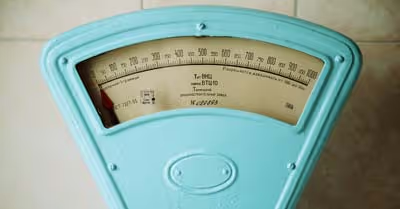Table of Contents
What Gives Weighted Blankets Their Weight?
Weighted blankets usually contain pellets of plastic or glass beads that are meant to add more pressure on the body. These are covered in padding to reduce the sound and feel and for warmth.
Why Use Weighted Blankets?
Research by the American Sleep Association shows that about 50-70 million Americans suffer from sleeping disorders, and weighted blankets are found to be useful in improving the quality of sleep due to their ability to mimic deep pressure stimulation where a controlled pressure is used to induce calmness.
This makes them an excellent option for anyone with a sleeping disorder, but it also helps with other problems where pressure therapy can induce calm. These include problems like anxiety disorders or anxiety as a comorbid condition. About 40% of adults in the US show symptoms of anxiety or depressive disorders, and this can cause problems with sleep and disrupt daily life activities.
Weighted blankets put the body’s autonomic nervous system into rest mode, which reduces the symptoms of anxiety, like rapid breathing or quickened heartbeat.
People suffering from developmental disorders like attention-deficit hyperactivity disorder (ADHD) or autism spectrum disorder (ASD) can also benefit from weighted blankets. People with these problems will usually find external stimuli too distracting or intense, and weighted blankets can help reduce the impact by keeping them calm and more focused on the pressure of the blanket itself.
This helps them relax and stay calm.
In fact, weighted blankets don’t have to be limited to people with such struggles. Healthy folks can also use weighted blankets for the comfort they provide and the improved quality of sleep.
How Much Should A Weighted Blanket Weigh?
Weighted blankets for adults should weigh about 10% of an adult’s total body weight. This ranges somewhere between 12 and 20 pounds and gives the coziness and warmth that induces calmness and helps with reducing anxiety, and helps with improving sleep.
Though the 10% rule is a baseline, you can add or remove a few pounds when picking a blanket based on what is most comfortable for you.
For children, the requirements are a bit different. Though the baseline remains the same – 10% of the child’s total body weight – it’s important to get the right weight for your child for their own health and safety.
Weighted blankets for kids usually range between 3 to 11 pounds.
How to Choose Your Weighted Blanket?
When it comes to their weight, the 10% rule is your criteria for selection, but some other factors may also come into play.
Health Concerns
While weighted blankets are good for sleep and reducing anxiety, they’re not always best for everyone. People with age-related troubles with sleeping, like respiratory problems, should avoid blankets with too much weight. Anyone with other sleep-related health concerns like sleep apnea should also avoid weighted blankets.
When selecting a weighted blanket for kids, it is best to consult a doctor to make sure they don’t pose any risks.
Size
Using a blanket less than 10% of your body weight may not actually benefit you the way it should. The weight could come from the filling itself, as well as the size of the blanket. If the blanket is small but weighs 10% of your body weight, it may still not provide the same benefits. It is best to use a weighted blanket that is the same size as your mattress.
Filling
The filling can also affect your decision on what kind of weighted blanket to buy. There are different kinds of fillings.
The most popular fillings are glass beads. These are about the same size as a grain of sand but much heavier, and thus weighted blankets with glass bead fillings usually have the least fill but the heaviest weight.
Plastic pebbles are also another option. These are, again, tiny round beads, but their movement and feel may be noticeable. If this gets disruptive when you’re trying to sleep, you may want to avoid plastic-filled weighted blankets.
Sand-filled blankets are also possible, but these tend to become clumpy when they come in contact with water, so washing can be difficult and needs special care.
There are also micro steel shot fillings that have smoother movement and are heavier than most other filling types.
Grains like rice or millet can also work like fillings, but these start rotting once they come in contact with water making them not quite the best choice.
Your Weight and Height
Though it is recommended that you select a blanket at a baseline of 10% of your body weight, the actual selection is up to you and your personal preferences. Some people choose a blanket with a couple of extra pounds, while some go down a bit. Though you don’t need a prescription of any sort to get a weighted blanket, it is always best to consult a sleep expert or your doctor before you get a blanket that is heavier than the ideal weight for you.
You should also consider your own height when it comes to making a selection. Your height is not a major factor when it comes to the benefits of the blanket itself, but it is best to find a blanket that covers you completely. Most blankets come in the standard mattress sizes, so finding one that fits you shouldn’t be a problem.
Recent Articles
















